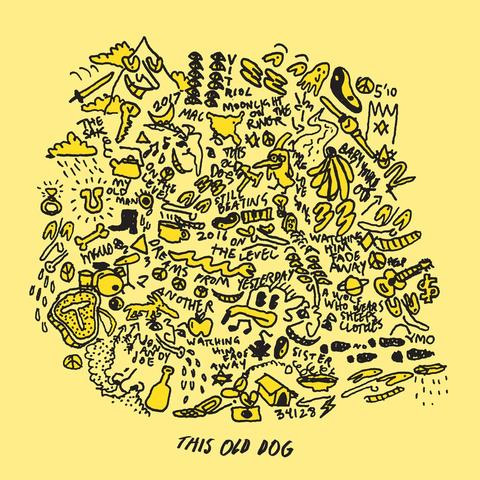
Growing up is hard, and growing into models of our parents is often harder. In Mac DeMarco’s new album, this fear is fleshed out, as DeMarco is faced with his own father in the mirror.
The Canadian artist’s third full-length album, “This Old Dog” sounds like his other efforts, but with more emphasis on the vocals than on the music that backs them up. DeMarco is known for his songwriting, and in his latest work he solidifies this reputation.
“This Old Dog” was released on May 5, and echoes in some ways the sadness inherent in this time of the year from all of the emotional endings and the feeling that things should be one way, but aren’t. The forecast calls for blue skies, but instead it pours. DeMarco is known for capturing this feeling of “the world is playing a trick on me, so I’ll laugh it off,” but this album is heavier than his previous ones.
Like the title, which references the adage that one cannot teach an old dog new tricks, the songs on the album address cliches. In the opening track “My Old Man,” DeMarco sings about “seeing more of my old man in me.” But it isn’t just a similarity that he is lamenting; it’s the inevitability of turning into his own father that has him down.
The highlights of the album are the middle tracks. DeMarco has sandwiched in a musical representation of what it’s like to be unsure of yourself, yet still want to seek validation from others. “Baby You’re Out” and “Dreams from Yesterday” are opposite in musical style, but offer listeners a chance to hear where the artist has come from and where he might go. The former sounds like its from the 1970s, and the latter features electronic vibes. DeMarco is equally capable of working in each of these styles, but more because he is buoyed by his lyrical skills rather than true musical versatility.
On “A Wolf Who Wears Sheeps Clothes,” DeMarco translates this fable literally, singing to his listeners, “Don’t let the world outside the windowpane get to your head.” He warns them of the scary things hiding outside, particularly those masquerading as “sheep.” This world-weariness and caution may surprise fans of DeMarco’s previous albums. On his first album, “Salad Days,” for example, the title is a direct reference to being young and naive, taken from Shakespeare’s play “Antony and Cleopatra.” The title track off of this record also works as a nod to a carefree attitude, particularly in the face of growing older. The progression from “Salad Days” to “This Old Dog” shows DeMarco aging, both musically and emotionally.
“This Old Dog” is a meditation on growing up — DeMarco turned 27 at the end of April. Critics on Pitchfork and Stereogum cite this maturation as the reason for the change in sound on the new album, but based on DeMarco’s other LPs, it is probably a little more than that. In some ways, DeMarco is still the teenage boy who figures out a way to get by and sticks with it; in others, he is a popular musician who reached popularity at a critical point in his life when things could have gone almost any way. This album is a tentative step away from the comfort DeMarco has found in his niche as a laid-back indie star and a step toward an identity as a more serious singer-songwriter.


